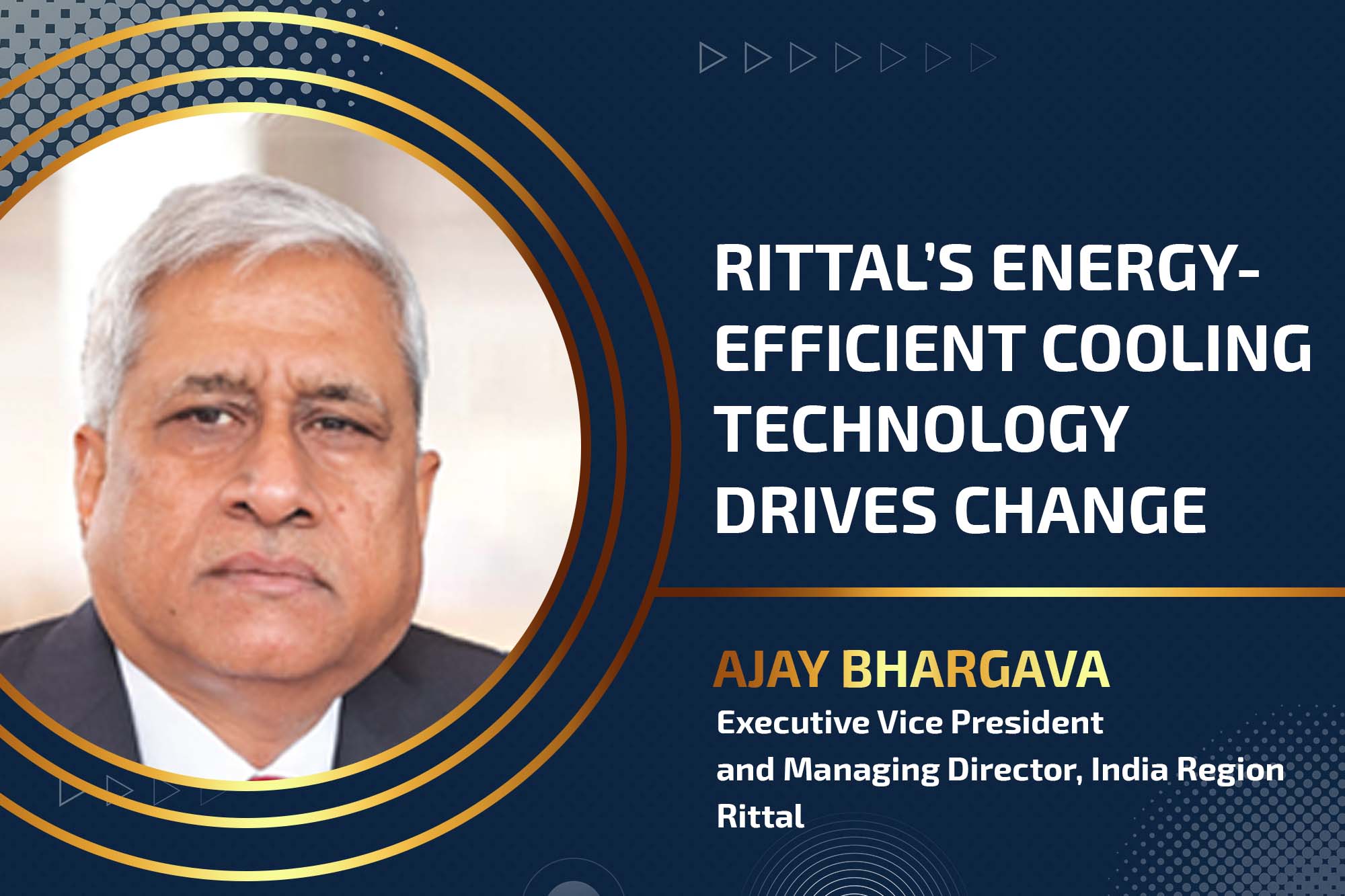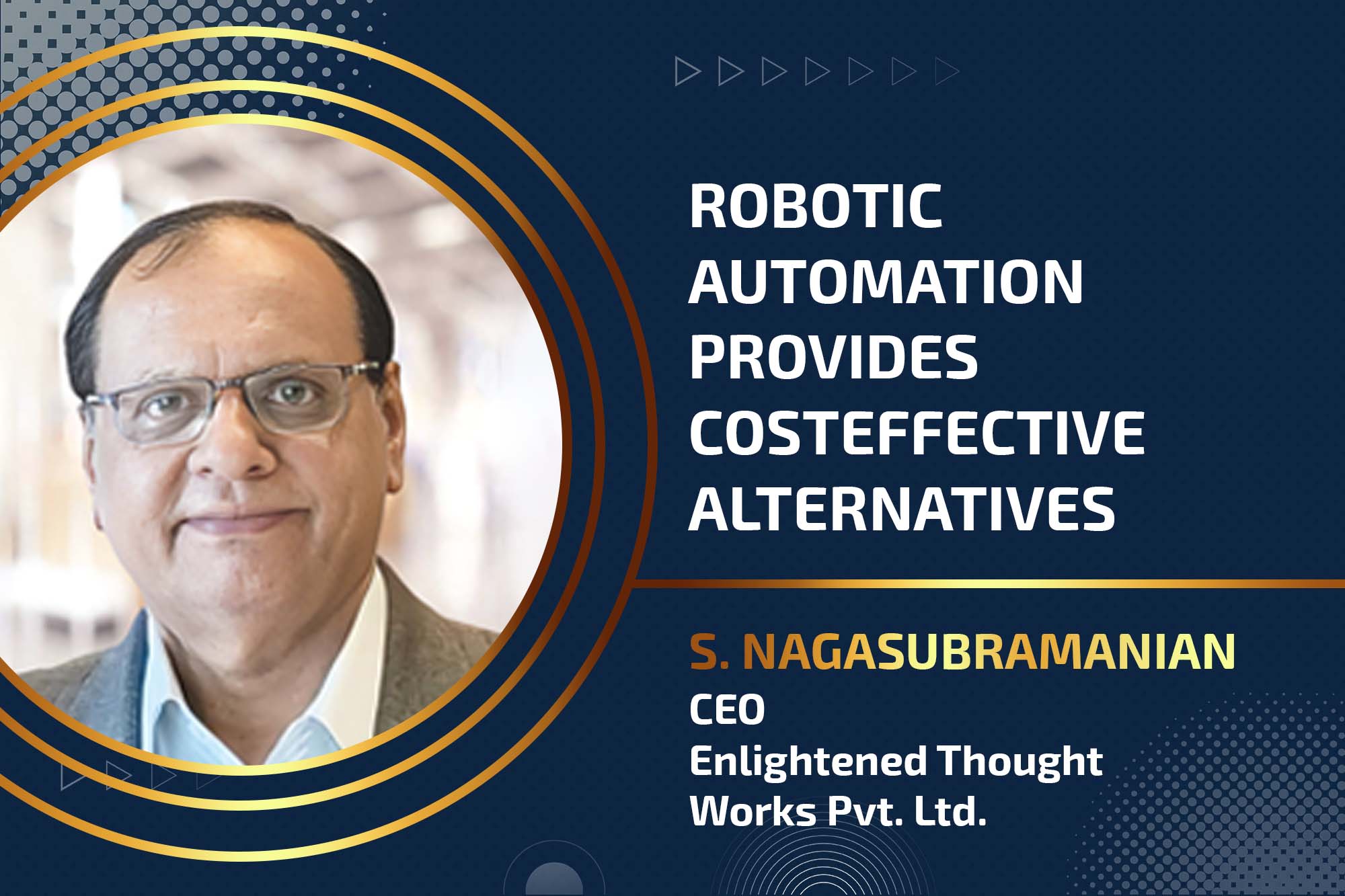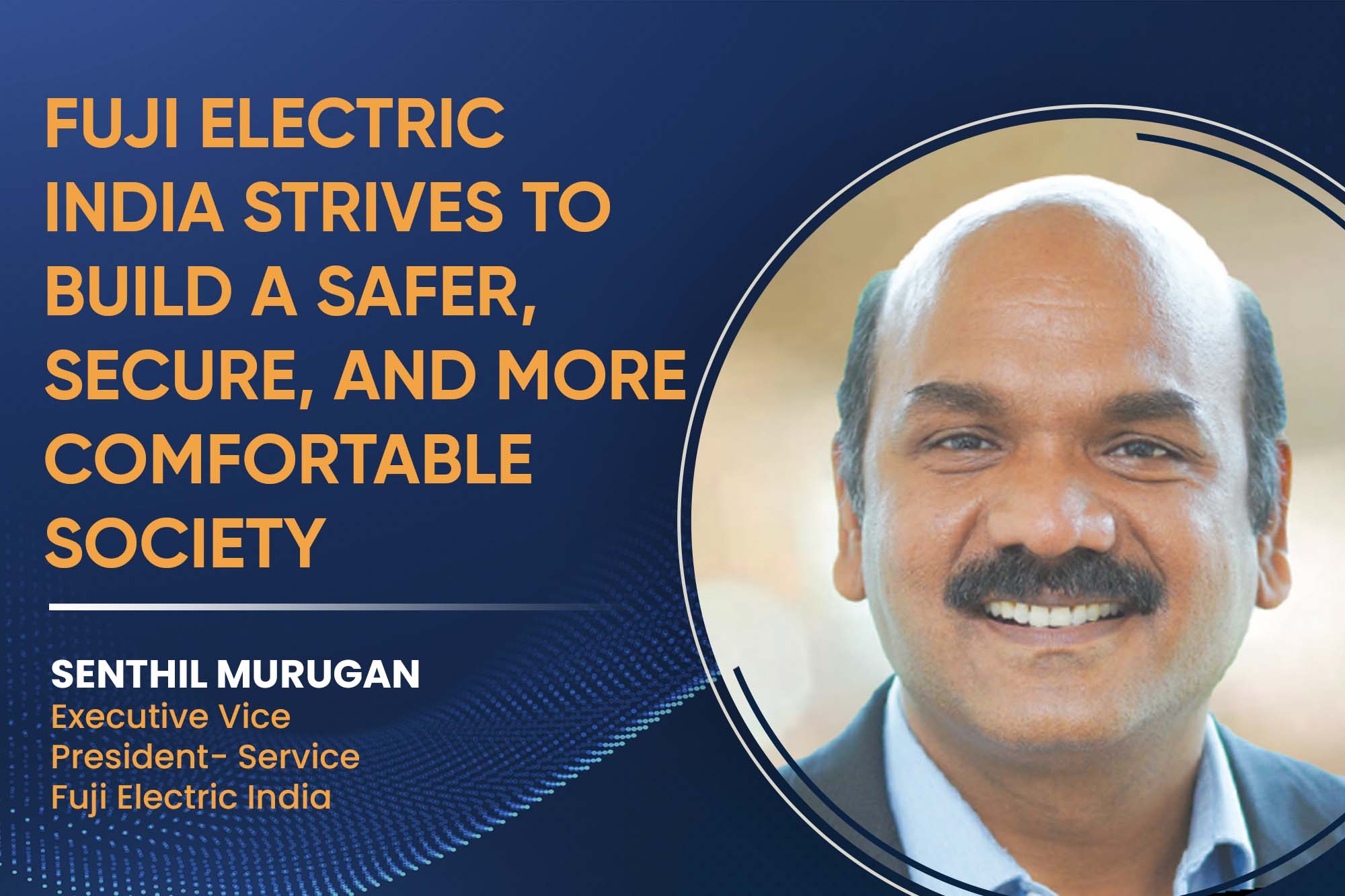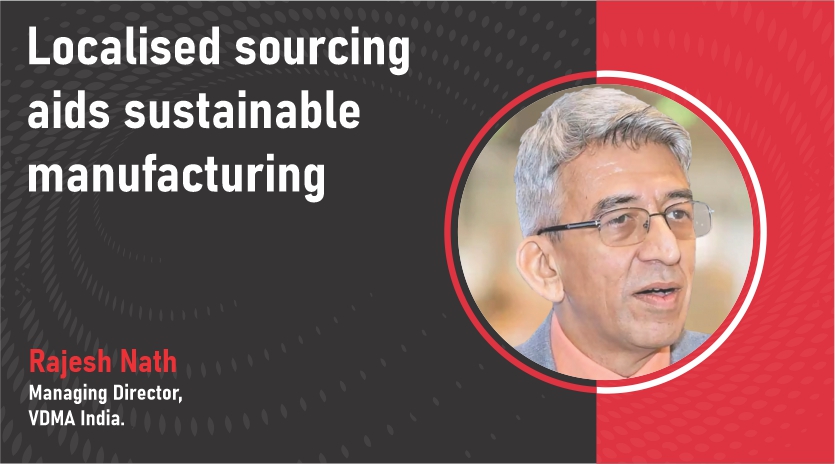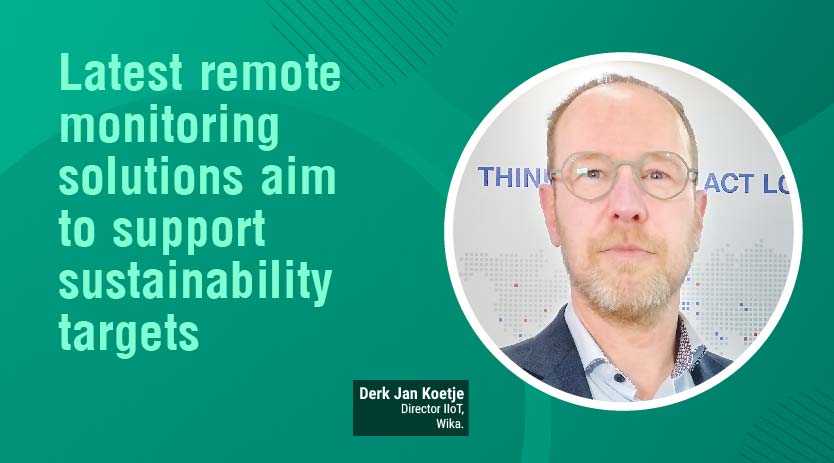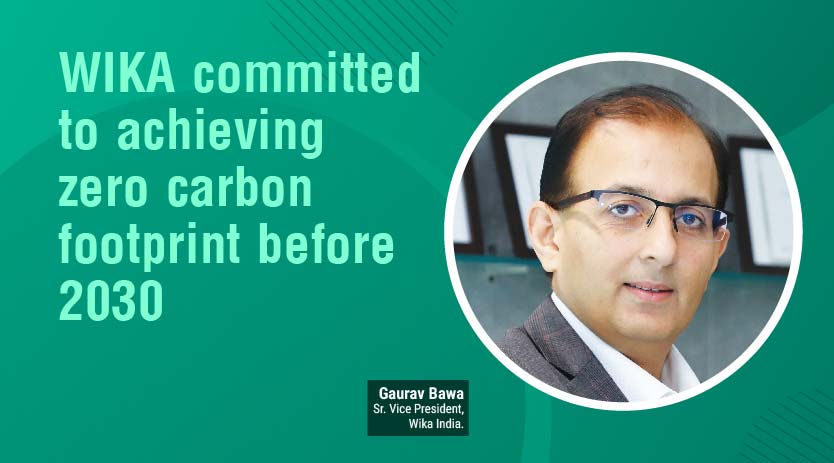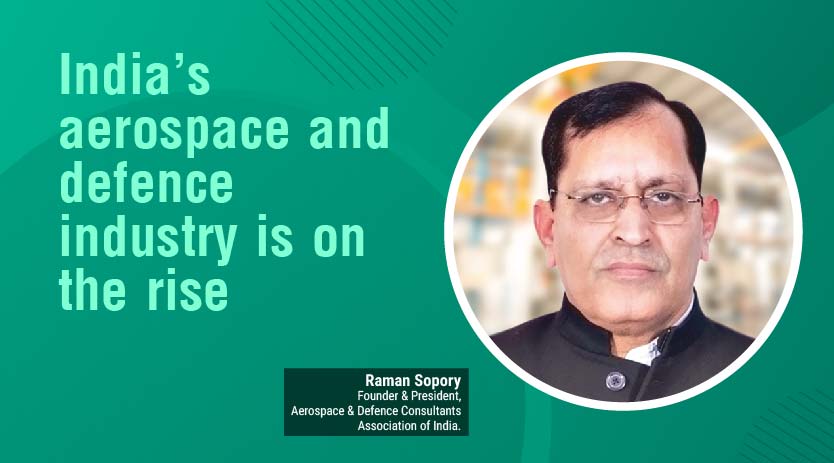Rittal’s energy-efficient cooling technology drives change
By OEM Update Editorial June 5, 2024 4:43 pm IST
Ajay Bhargava, Executive Vice President and Managing Director of Rittal, shared bits about Rittal’s legacy and management. This is a case study for emerging MSMEs on managing their investments and making futuristic plans.
How is Rittal advancing Industry 4.0 in manufacturing both in India and globally?
Our businesses include enclosures, cooling, power distribution, IT data centres, and software. We are digitalising our manufacturing processes in line with Industry 4.0.
Industry 4.0 holds the implementation owing to limited investment and physical labour. Many MSME companies still need to implement Industry 4. In India, domestic companies lack the investment to wholly automate their plants, raising a concern as there will be a lot of work with a small crew. However, India has approached Industry 4.0 in a balanced manner compared to Western countries. Our Haiger factory in central Hesse, Germany, is fully automated. This factory is ready to move wherever it is needed. Rittal manufactures up to 8,000 compact enclosures daily in Haiger using 250 highly digitally integrated machines.
How does Rittal effectively address the shortage of skilled personnel across several regions?
A labour shortage is prevalent in the entire Western world. India is on the side of luck in this matter. Although recruiting a skilled worker is difficult, The onus is on the businesses in practice to train and speed up the skilling. Industry 4.0 and 5.0 will come into play, allowing us to perform tasks with minimal human participation. The scenario in India is different from that in the US and Europe. India has a mammoth population to employ. Qualified professionals are available; what is missing is training. It is only time before we have a competent labour force.
How does Rittal collaborate with academics in India to address the labour shortage challenge?
Rittal operates in both the hardware and academic sectors. Our young generation prefers IT over manufacturing, so we provide training on the latest technologies for panel building. We also work with universities to promote software and technologies while highlighting digitisation as a powerful tool in machine-building automation.
How does Rittal promote sustainability in its solutions to achieve energy savings?
Rittal solutions are designed with energy efficiency in mind. We have industrial and IT cooling units, delivering 80 per cent energy savings and a notable reduction in carbon footprints. The carbon focus is gaining traction in India and Europe. We also incorporate global warming potential as a metric. Rittal is also stressing water-based cooling units. We are advancing liquid cooling technology in the IT sector and enhancing energy efficiency in industrial cooling. We contribute to operational efficiency while reducing energy usage and carbon emissions by exercising our cutting-edge technology.Which industries are driving demand in India for Rittal?
Energy is the largest sector in industrial applications, with renewable energies like wind, solar, and oil and gas being significant contributors. Automotive manufacturing is witnessing growth with the emergence of EVs and charging infrastructure. The food and beverage industry is also expanding. Infrastructure projects, including tunnels, telecom networks, and transportation hubs such as highways, airports, ports, and solar installations, require substantial attention and investment.
How can Indian MSMEs achieve sustainable growth and global competitiveness?
MSMEs are growth drivers in India. Everyone, from our prime minister to students, knows the value of MSME growth for holistic development. The crackdown is that MSMs are owner-driven businesses that frequently lack succession planning. They plan on cashing it out instantly.
MSMEs often exhibit a conservative investment approach. However, they prioritise quality and productivity to produce goods of international standards. India has showcased robust performance in the industrial sector. Many global corporations are thriving in India, notably the automobile business. For instance, Suzuki was chosen as a data-driven corporation despite their parent company being based outside India.
Sustainable growth and globalisation are possible with a long-term perspective. India must invest in talent acquisition and foster a culture conducive to creating globally competitive enterprises. Over the past few decades, India has lagged behind China in terms of company growth and exports. The MSME sector in India remains relatively small, and companies often fail to surpass the annual growth threshold of 10–20 million euros. Indian firms must gear up and adopt strategic investments to promote global competitiveness.
Rittal is a 60-year-old family-owned firm. Taking a cue, we were a substantial corporation managed worldwide. Indian enterprises have scope for development in the next few decades, but it would take a technology, investment, and people-focused strategy. MSMEs possess inherent potential; they need to use it effectively. Success becomes attainable, provided investments are directed wisely.
Cookie Consent
We use cookies to personalize your experience. By continuing to visit this website you agree to our Terms & Conditions, Privacy Policy and Cookie Policy.



